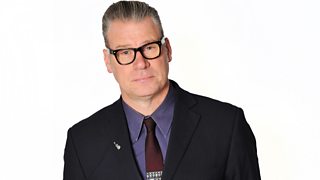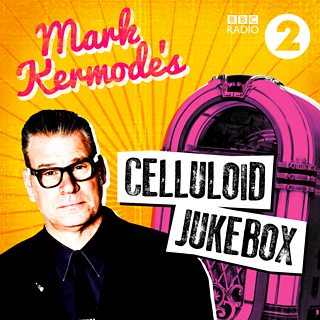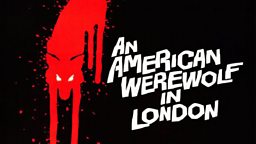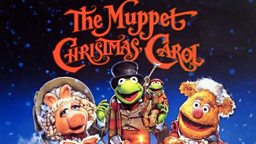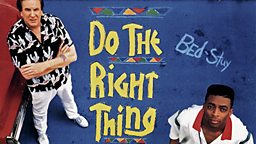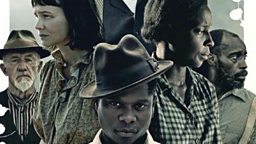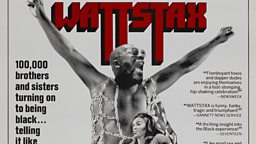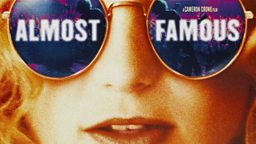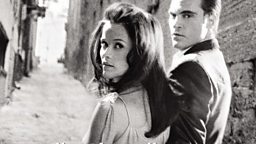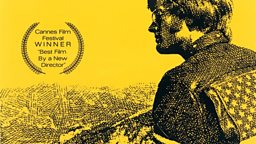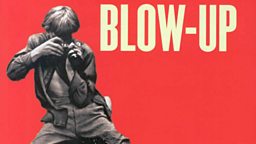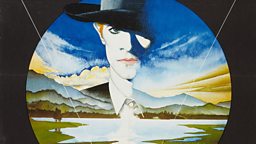Seven of the best movie closing credit songs
This Wednesday (27 December 2017) saw the end of the current series of Mark Kermode’s Celluloid Jukebox on Radio 2. So what better way to mark this sad occasion than with a celebration of excellent tunes used at the end of movies?
For more, catch up with .
1. The Marcels - Blue Moon (An American Werewolf in London, 1981)
Director John Landis' lycanthropic cult classic (about a couple of American students attacked by a werewolf on the Yorkshire moors) ends on a melancholic note, before a hard cut to the cheery doo-wop sounds of The Marcels performing Blue Moon. It's a trick termed "soundtrack dissonance" - the purposeful mismatch of music and on-screen image - and Landis' musical ending would prove hugely influential for film closing sequences to come...
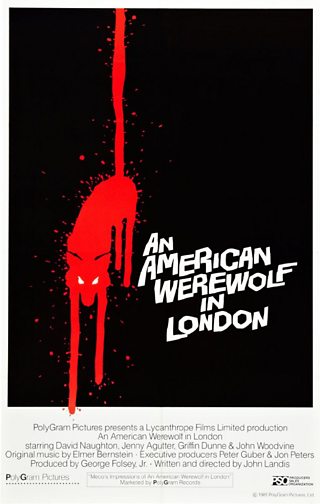
American Werewolf is stuffed full of lunar-related tunes, including Van Morrison's Moondance, Creedence Clearwater Revival's Bad Moon Rising, and a couple of other takes on Blue Moon by Bobby Vinton and Sam Cooke. Landis had also wanted to employ Cat Stevens' Moonshadow, but claims his plan was nixed because Stevens was concerned that werewolves were real!
2. Sly & The Family Stone - Que Sera Sera (Whatever Will Be, Will Be) (Heathers, 1988)
Eighties teen satire Heathers features two takes on Doris Day's Oscar-winning Que Sera Sera (initially written for 1956 Hitchcock thriller The Man Who Knew Too Much). The dark comedy ends with funk masters Sly & The Family Stone's 1973 rendering of the song, but the filmmakers initially intended to open with Day's own version. They were instead forced to use Syd Straw's take, after Ms Day revealed she wouldn't lend her signature tune to any project using profanity.
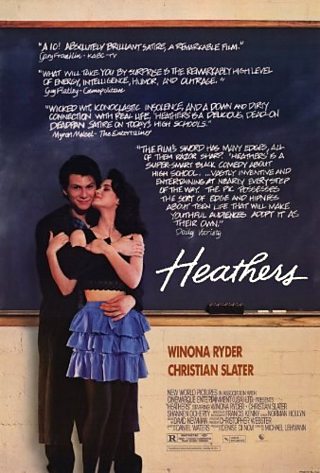
Heathers also memorably features anti-suicide anthem Teenage Suicide (Don’t Do It) by fictitious band Big Fun (not to be confused with the Stock Aitken and Waterman-produced boy band of the same name!). Named by Winona Ryder as her favourite of all her films, a television reboot of the movie is due to hit American screens in 2018.
3. Sid Vicious - My Way (Goodfellas, 1990)
Music has always been an integral part of Martin Scorsese’s work - the soundtrack to 1973’s Mean Streets was chosen entirely from his own collection of 50s and 60s rock and soul singles. Epic mob drama Goodfellas went even further, with 43 hand-picked songs on its soundtrack - the equivalent of about four albums’ worth of music. While key scenes in the movie were soundtracked by Eric Clapton and Donovan, Scorsese was keen to add Frank Sinatra’s version of the old French standard to the film’s closing credits until the Chairman Of The Board refused, reportedly worried his music was already too closely associated with the mafioso.
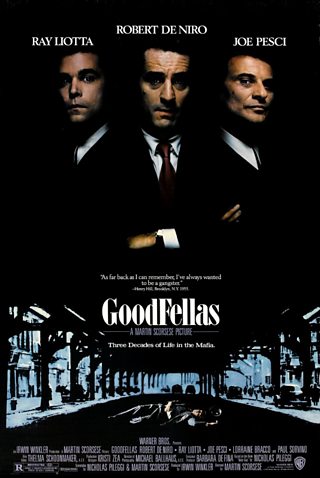
The Sex Pistols’ doomed bassist Sid Vicious’ take on My Way is much more risque than Sinatra’s original - he hadn’t bothered to learn the lyrics so improvised a bunch of words, including several four-letter monstrosities.
4. Harry Nilsson - Coconut (Reservoir Dogs, 1992)
Singer-songwriter Harry Nilsson is perhaps best known for his emotive take on Badfinger’s Without You (memorably covered by Mariah Carey). But this song (from the same 'Nilsson Schmilsson' album) is quite a different beast - the jaunty tale of a girl stricken with a bout of gastroenteritis after ill-advisedly mixing lime and coconut.
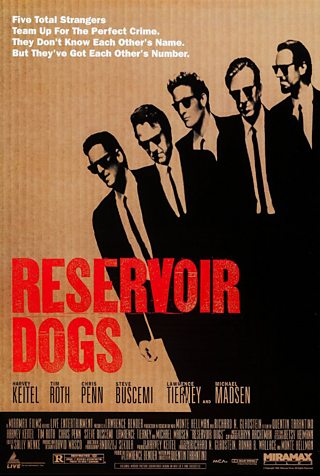
Director Quentin Tarantino wanted Reservoir Dogs to have a 1950s feel while using 1970s music - the soundtrack is tied together by deadpan American comedian Steven Wright as DJ K-Billy, host of the fictional Sounds of the Seventies radio show. Following its exposure in Tarantino’s debut, the track also featured in the likes of The Ice Storm, Practical Magic and Daddy Day Care.
5. Radiohead - Exit Music (For A Film) (Romeo + Juliet, 1996)
Radiohead’s aptly-titled track was written after director Baz Luhrmann sent the Oxford band the final 20 minutes of his contemporary Shakespeare adaptation on VHS tape and asked them to come up with a track for its ending. According to singer Thom Yorke, "When we saw the scene in which Claire Danes holds the Colt .45 against her head, we started working on the song immediately." Exit Music (For A Film) was left off the film's best-selling soundtrack album at the band's request, only to appear on their breakthrough OK Computer album the following year.
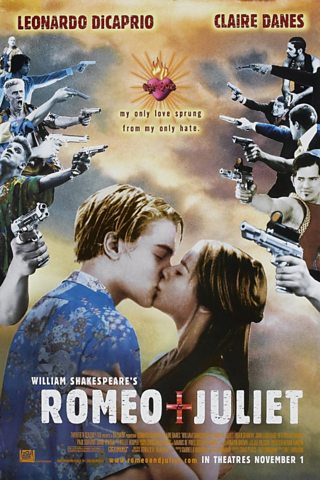
Luhrmann's film also generated a spattering of hit singles, including The Cardigans’ Lovefool, Des’ree’s Kissing You and Kym Mazelle’s cover of Candi Staton’s disco classic Young Hearts Run Free.
6. Rage Against The Machine - Wake Up (The Matrix, 1999)
You could be forgiven for initially thinking that it’s Led Zeppelin’s iconic Kashmir that closes out the Wachowski siblings’ sci fi movie. But it’s actually sound-a-like Wake Up, by agit-prop rockers Rage Against The Machine, that features at the end of The Matrix. The track has been a highlight of the group's live sets ever since its inclusion in the film.
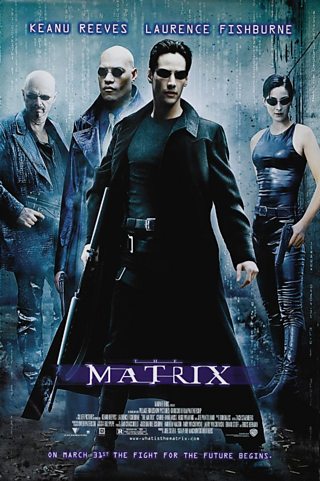
Pioneering as the movie was, The Matrix's soundtrack places it firmly in the time in which it was made, populated with tracks from various nu metal and industrial types, including Rammstein, Ministry and Marilyn Manson. The film has also been a big influence on hip hop - artists including JAY-Z, Drake, Nas and Kendrick Lamar have all referenced it in lyrics.
7. Patti Smith - End Of The World (mother!, 2017)
We end with one of the most divisive films of recent times - Darren Aronofsky's jet-black comedy mother! The Jennifer Lawrence-starring movie provoked both boos and wild applause on its initial showing at the Venice Film Festival. It also has the dubious honour of being one of only 19 films to receive the lowest possible F rating from audiences surveyed by US market researchers Cinemascore. Mark Kermode, however, is a big fan, calling it "a very impressive piece of oppressive work."
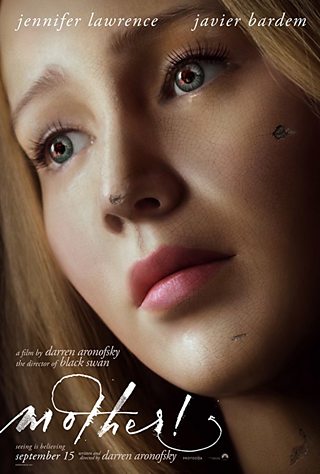
Patti Smith’s version of Skeeter Davis’ heartbreaking 1962 country pop tune is the only song to appear in the film and the punk legend performed it live over the film's closing credits at its American premiere - to a rapturous reception.
